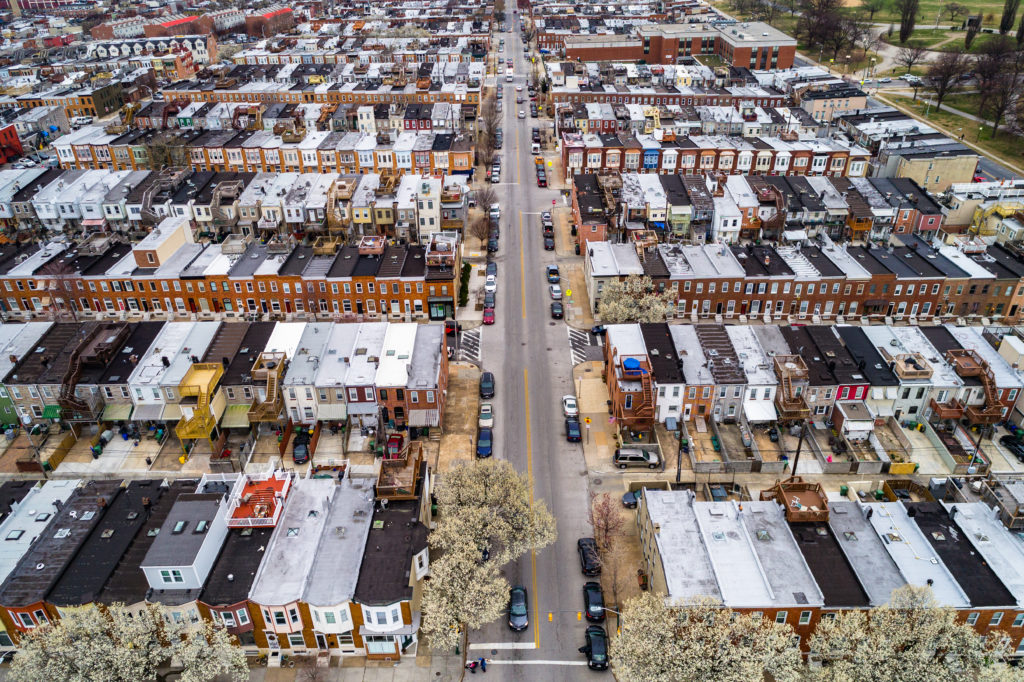The coronavirus pandemic exposed widespread housing insecurity in Maryland, and throughout the United States. While the state and federal governments enacted temporary moratoriums on evictions during the beginning of the pandemic, the moratoriums expired in summer 2021, allowing evictions to proceed once again. Moreover, according to the National Equity Atlas, more than 100,000 Maryland families were behind on rent at the start of 2022, 78%of whom are headed by people of color, and 52% of these households have children. These families are at risk of eviction due to unpaid rent, despite the fact that many cannot afford to pay their rent because of financial hardships caused by the COVID-19 pandemic. Evictions have devastating consequences for both the individuals and families subjected to eviction, and for the communities diminished by the loss of residents. Evictions disrupt and upend people’s lives, and can lead to job loss, interruptions in children’s schooling, extreme stress, deteriorating physical and mental health, and homelessness.
Legal assistance is key to low-income tenants in eviction cases, yet access to such assistance is severely limited. While defendants in criminal cases have a right to a lawyer, defendants in civil cases who cannot afford one generally have no right to counsel. Many tenants facing eviction have legitimate defenses to eviction proceedings, but they are either unaware of their rights or unsuccessful raising the defenses in court, where most tenants appear without legal representation, and rules and procedures tend to favor landlords.
Public Justice Center
With funding from the Abell Foundation, the Public Justice Center has been advocating for many years to create a right to counsel for tenants facing eviction in Maryland. In May 2020, PJC released an Abell-funded report by the consulting firm Stout Risius Ross (Stout), which concluded that providing legal counsel to tenants in eviction cases in Baltimore is a cost-effective way to reduce the harmful impacts of evictions. According to the report, an investment of $5.7 million to provide legal representation for 7,000 tenants in eviction cases would save the city and state jointly $35.6 million.
Armed with the Stout study, the Public Justice Center and its allies successfully advocated for the Baltimore City Council and the State of Maryland to enact legislation providing a right to counsel for tenants facing eviction. The city law, passed in November 2020, made Baltimore the seventh jurisdiction in the country to guarantee legal representation to tenants facing eviction, and in 2021, Maryland became the second state in the nation to provide a right to counsel for tenants facing eviction. When fully implemented, both laws should lead to significant reductions in evictions and their associated individual and societal costs. Although neither the city nor the state laws provided a dedicated source of funding to support implementation, recent funding allocations from the state and city governments will provide over $6 million to support the new access to counsel program.
Equal Justice Works
While the right to counsel laws mark significant progress for Maryland renters and their advocates, legal services providers in the state do not have sufficient staff to meet the need for representation, according to the Maryland Access to Counsel in Evictions Task Force. In its January 2022 report, the Task Force stated, “To . . . ensure that eligible clients can access counsel for eviction matters, legal services providers will need to build a pipeline of attorneys and paralegals ready to provide the required legal assistance.” The Task Force pointed to national legal services provider Equal Justice Works as a potential partner to develop a pipeline of attorneys to meet the demand for eviction prevention representation.
With funding from the Abell Foundation, Equal Justice Works plans to launch a new Housing Justice Program in Maryland in 2022. Modeled on a successful Equal Justice Works program in Richmond, Virginia, the Maryland program will recruit, train and place 14 Housing Justice Fellows – a combination of lawyers and community organizers – who will work in legal services organizations in Baltimore City, Baltimore County, Prince Georges County, and the Eastern Shore. The fellows will work to identify patterns, organize tenants, engage in impact litigation to challenge structural issues, and educate key stakeholders around the causes and consequences of housing instability. In addition to direct representation, fellows ensure that legal services are more available and accessible to tenants by conducting know-your-rights sessions and engaging tenants in community organizing to empower them to form active tenant associations that are instrumental in holding elected leaders and public officials accountable.
By recruiting and training a cadre of Housing Justice fellows, Equal Justice Works hopes to seed the field of attorneys and organizers committed to preventing unjust evictions.
Photo licensed from Shutterstock.
